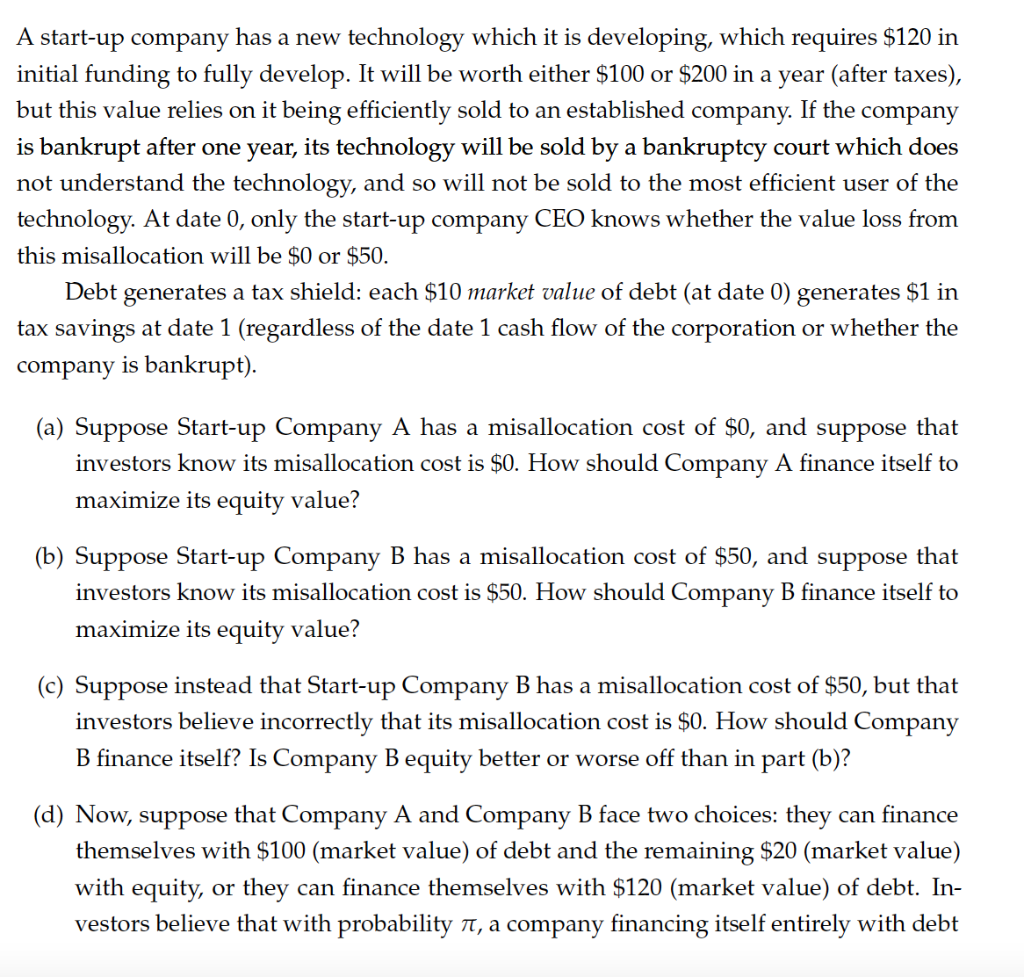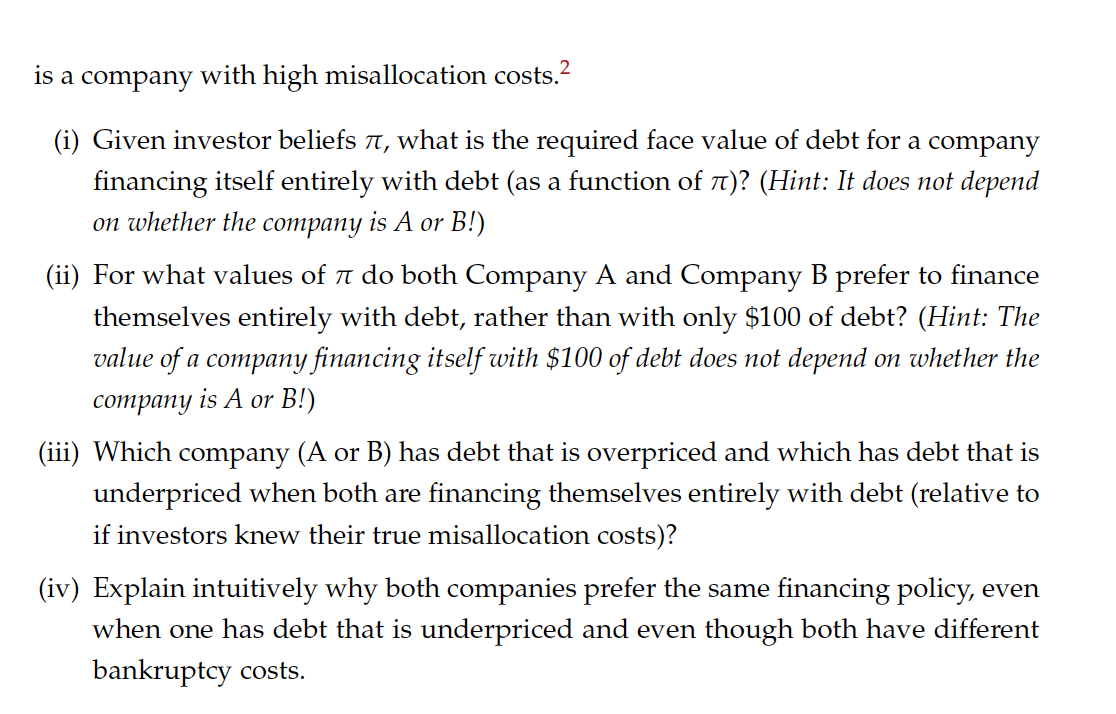

If the company A start-up company has a new technology which it is developing, which requires $120 in initial funding to fully develop. It will be worth either $100 or $200 in a year (after taxes), but this value relies on it being efficiently sold to an established company. is bankrupt after one year, its technology will be sold by a bankruptcy court which does not understand the technology, and so will not be sold to the most efficient user of the technology. At date 0, only the start-up company CEO knows whether the value loss from this misallocation will be $0 or $50. Debt generates a tax shield: each $10 market value of debt (at date 0) generates $1 in tax savings at date 1 (regardless of the date 1 cash flow of the corporation or whether the company is bankrupt). (a) Suppose Start-up Company A has a misallocation cost of $0, and suppose that investors know misallocation cost is $0. How should Company A finance itself to maximize its equity value? (b) Suppose Start-up Company B has a misallocation cost of $50, and suppose that investors know its misallocation cost is $50. How should Company B finance itself to maximize its equity value? (c) Suppose instead that Start-up Company B has a misallocation cost of $50, but that investors believe incorrectly that its misallocation cost is $0. How should Company B finance itself? Is Company B equity better or worse off than in part (b)? (d) Now, suppose that Company A and Company B face two choices: they can finance themselves with $100 (market value) of debt and the remaining $20 (market value) with equity, or they can finance themselves with $120 (market value) of debt. In- vestors believe that with probability a, a company financing itself entirely with debt is a company with high misallocation costs.2 (i) Given investor beliefs n, what is the required face value of debt for a company financing itself entirely with debt (as a function of a)? (Hint: It does not depend on whether the company is A or B!) (ii) For what values of a do both Company A and Company B prefer to finance B themselves entirely with debt, rather than with only $100 of debt? (Hint: The value of a company financing itself with $100 of debt does not depend on whether the company is A or B!) (iii) Which company (A or B) has debt that is overpriced and which has debt that is underpriced when both are financing themselves entirely with debt (relative to if investors knew their true misallocation costs)? (iv) Explain intuitively why both companies prefer the same financing policy, even when one has debt that is underpriced and even though both have different bankruptcy costs. If the company A start-up company has a new technology which it is developing, which requires $120 in initial funding to fully develop. It will be worth either $100 or $200 in a year (after taxes), but this value relies on it being efficiently sold to an established company. is bankrupt after one year, its technology will be sold by a bankruptcy court which does not understand the technology, and so will not be sold to the most efficient user of the technology. At date 0, only the start-up company CEO knows whether the value loss from this misallocation will be $0 or $50. Debt generates a tax shield: each $10 market value of debt (at date 0) generates $1 in tax savings at date 1 (regardless of the date 1 cash flow of the corporation or whether the company is bankrupt). (a) Suppose Start-up Company A has a misallocation cost of $0, and suppose that investors know misallocation cost is $0. How should Company A finance itself to maximize its equity value? (b) Suppose Start-up Company B has a misallocation cost of $50, and suppose that investors know its misallocation cost is $50. How should Company B finance itself to maximize its equity value? (c) Suppose instead that Start-up Company B has a misallocation cost of $50, but that investors believe incorrectly that its misallocation cost is $0. How should Company B finance itself? Is Company B equity better or worse off than in part (b)? (d) Now, suppose that Company A and Company B face two choices: they can finance themselves with $100 (market value) of debt and the remaining $20 (market value) with equity, or they can finance themselves with $120 (market value) of debt. In- vestors believe that with probability a, a company financing itself entirely with debt is a company with high misallocation costs.2 (i) Given investor beliefs n, what is the required face value of debt for a company financing itself entirely with debt (as a function of a)? (Hint: It does not depend on whether the company is A or B!) (ii) For what values of a do both Company A and Company B prefer to finance B themselves entirely with debt, rather than with only $100 of debt? (Hint: The value of a company financing itself with $100 of debt does not depend on whether the company is A or B!) (iii) Which company (A or B) has debt that is overpriced and which has debt that is underpriced when both are financing themselves entirely with debt (relative to if investors knew their true misallocation costs)? (iv) Explain intuitively why both companies prefer the same financing policy, even when one has debt that is underpriced and even though both have different bankruptcy costs








